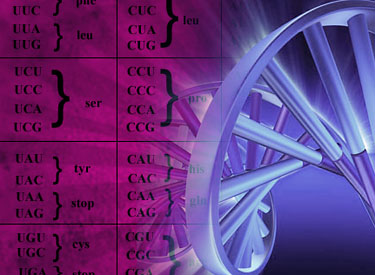NaturalNews
November 2, 2010
This is one of the most important issues for the future of human civilization: Who owns your genetic code? Based on existing U.S. law, the corporations own it. Right now, over 20% of your genetic code is owned by biotech corporations (this is a fact). But the U.S. Justice Department has just issued a “friend of the court” briefing that looks poised to overturn this, driving a stake through the heart of the intellectual property monster known as the biotech industry.
 | |
| Human genetic code was obviously not invented by humans, and especially not by one person or corporation. | |
Human genes are part of nature, not a human invention
In its brief, the Dept of Justice argued that genes should not be patentable because they are part of nature:
“The chemical structure of native human genes is a product of nature, and it is no less a product of nature when that structure is ‘isolated’ from its natural environment than are cotton fibers that have been separated from cotton seeds or coal that has been extracted from the earth…” (http://graphics8.nytimes.com/packag…)
This makes sense, of course — it’s the same thing I’ve been arguing here on NaturalNews for years. To allow corporations to own even a small part of the human genome is a pathway to human slavery. We have been headed down that path for a long time, and now for the first time it appears things may be turning for the better.
The insanity of modern patent law
Few reasonable people would argue that U.S. patent law as it exists today makes any real sense in the first place. Patents are supposed to offer legal protection for “man-made inventions.” The whole idea that you can patent human genes is ridiculous from the outset.
Human genetic code was obviously not invented by humans, and especially not by one person or corporation. To grant a corporation an intellectual property monopoly over even a single human gene is an affront to human heritage and a violation of natural law. That this has already happened is a crime against humanity.
Theoretically, such patents actually give corporations the right to charge royalties when couples reproduce because by having a baby, you are “replicating” a patented gene without permission. Thus, you could be guilty of patent violation and be forced to pay a royalty to the patent owner.
Fast forward this a few decades under a country controlled by corporate interests, and you can see where it ends up: Just to have a baby, you might have to pay $100,000 in royalty payments to dozens of different corporations who own “your” genetic code. This would all be enforced by local police officers and sheriffs who might arrest you at gunpoint for your acts of “corporate piracy” (getting pregnant).
Don’t think it could happen? Check out the history of the RIAA and its intellectual property war against the people. Look at what Monsanto has done to farmers who accidentally grew GMO crops because the GMO seeds blew into their fields. Look what Myriad Genetics is doing right now with its patent on human breast cancer genes BRCA1 and BRCA2 — it’s charging $3,000 a pop to run a simple test that determines whether women carry those genes.
Make no mistake: When you hand monopoly control to a corporation, that corporation will exploit it to its fullest extent, even if it means destroying human lives in the process.
Why stop at genes? Seeds should also be set free
If the USPTO disallows all patents on human genes, then by the same logic there should be no patents allowed on seeds or animals, either. The patenting of seeds is yet another method by which powerful corporations like Monsanto and DuPont may effectively enslave the human race by controlling the food supply. (CONTINUE READING)